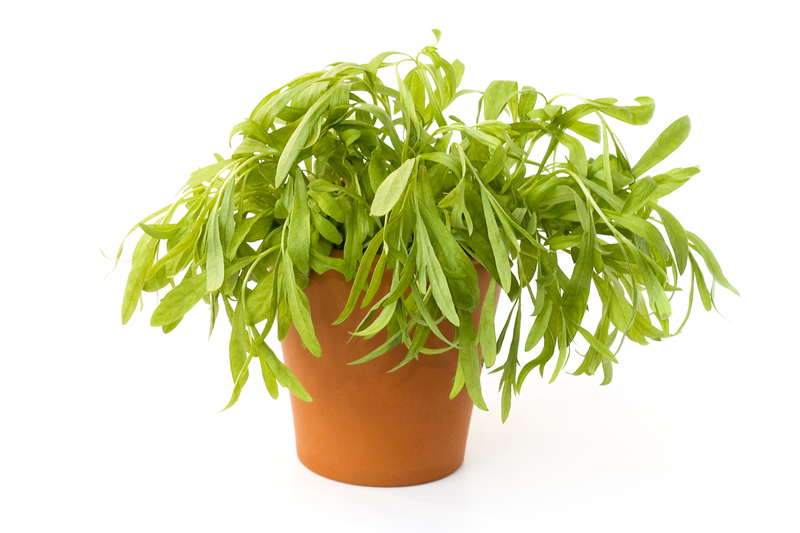Caring for Your Garden Plants During Winter
Posted on 28/06/2025
Caring for Your Garden Plants During Winter: An Essential Guide
Winter can be tough on your beloved garden, but with the right care and preparation, your plants can not only survive but thrive throughout the cold season. In this comprehensive article, we will explore how to protect and nurture your garden plants during winter. From choosing the right winter protection techniques to maintaining healthy growth, this guide presents everything you need to know for successful plant care in winter.

Understanding Winter's Effects on Garden Plants
Cold temperatures, frost, snow, and reduced sunlight can pose significant challenges to your garden. Winter plant care is crucial because plants become more susceptible to frost damage, dehydration, and diseases. Knowing how winter impacts various plant species will help you tailor your garden care strategies effectively.
Common Winter Threats to Garden Plants
- Frost: Freezing temperatures can cause plant cells to rupture, leading to wilted and discolored foliage.
- Snow Accumulation: Heavy snow can break stems and branches, damaging or killing vulnerable plants.
- Dehydration: Plants may lose water through transpiration while the ground remains frozen, making it difficult for roots to absorb moisture.
- Pest and Disease: Winter isn't free from pests; some fungi and rodents seek shelter in gardens during colder months.
Preparing Your Garden for Winter
Proper preparation is the first step in caring for garden plants during winter. Begin as autumn ends to ensure that your plants enter winter in the healthiest state possible.
Step-by-Step Winter Preparation Checklist
- Clean Up Debris: Remove fallen leaves, weeds, and old plant material to prevent pests and diseases from overwintering.
- Prune Dead or Diseased Branches: Pruning helps plants direct their energy towards healthy growth and reduces the risk of infection.
- Mulch Beds: Apply a thick layer of organic mulch like straw, leaves, or wood chips to insulate roots and retain soil moisture.
- Water Thoroughly: Water plants well before the ground freezes, as hydrated plants are better equipped to survive the winter months.
- Protect Container Plants: Move pots to sheltered locations or insulate them with burlap or bubble wrap.
Recognizing the Special Needs of Different Garden Plants in Winter
Every plant species has unique requirements for winter survival. Winter plant care varies greatly between perennials, annuals, shrubs, bulbs, and evergreens.
Perennials and Their Winter Care
- Cut Back Foliage: Once the first frost hits, cut perennials back to a few inches above the ground and apply winter mulch.
- Divide Crowded Plants: Divide mature perennials before winter to prevent overcrowding and promote vigorous spring growth.
Protecting Shrubs and Trees
- Wrap Young Trees: Use tree wraps or burlap to protect against frost cracks and hungry wildlife.
- Mulch Around Root Zone: Apply a thicker layer of mulch around trees and shrubs to insulate roots.
- Watering: Give your trees and shrubs deep watering before the ground freezes completely.
Annuals in the Winter Garden
- Remove or Overwinter: Most annuals do not survive frost, so remove them or move them indoors if possible.
- Collect Seeds: Save seeds from healthy plants for replanting in the spring.
Caring for Bulbs During Cold Months
- Insulate In-Ground Bulbs: Mulch heavily after the first freeze to protect bulbs from temperature fluctuations.
- Lift Tender Bulbs: Dig up gladiolus, dahlias, and other tender bulbs to store in a cool, dry place indoors.
Maintaining Evergreens in Winter
- Prevent Windburn: Shield evergreens with burlap screens on the windward side to reduce moisture loss.
- Watering: Water evergreens during dry spells when the ground isn't frozen to prevent dehydration.
Top Methods for Protecting Plants in Winter
There are several tried-and-true techniques for helping your garden plants survive winter. Below are some of the most effective strategies used by experienced gardeners.
Mulching for Insulation
Apply a 2-4 inch layer of mulch around your plants and shrubs. Organic mulches such as straw, pine needles, wood chips, or compost are ideal as they regulate soil temperature, conserve moisture, and gradually enrich the soil as they decompose.
Using Row Covers and Cloches
For delicate perennials and vegetables, lightweight fabrics like garden fleece, row covers, or custom-fit cloches create a warm, protective barrier. Row covers allow sunlight and rain in while shielding plants from frost, wind, and pests.
Protecting with Cold Frames and Greenhouses
- Cold Frames: Cold frames extend the growing season by retaining heat and protecting small plants from cold snaps. They are perfect for overwintering herbs and salad greens.
- Greenhouses: If you have a greenhouse, keep it clean, ventilated, and equipped with frost protection measures such as heaters or insulating mats.
Bringing Plants Indoors
Some plants won't survive outdoor winter conditions. Move potted plants, tropicals, and tender annuals into the house, garage, or shed and place them in a well-lit, cool spot. Monitor soil moisture but avoid overwatering, as plants go semi-dormant in lower light.
Anti-Desiccant Sprays and Wind Barriers
- Anti-Desiccant Sprays: Help reduce moisture loss from leaves on evergreens, especially during harsh, dry winter winds.
- Wind Barriers: Construct simple fences with burlap or snow fencing on the exposed side of your property to protect plantings from cold winds and salt spray.
Winter Watering and Ongoing Plant Maintenance
Even in winter, your garden plants need water. Most winter damage is due to desiccation rather than cold alone. Water evergreen plants, new trees, and perennials deeply before a freeze and during dry winter spells when the soil is not frozen.
- Check soil moisture regularly by probing beneath mulch layers.
- Water in the morning so excess moisture evaporates before nightfall, reducing the risk of ice forming around roots.
- Reduce watering frequency as growth slows, but do not let plants dry out completely.
Inspect for Winter Damage
Walk through your garden periodically during winter. Check for broken branches, signs of disease, or pest activity. Clear away heavy snow from shrubs and trees with a gentle broom to prevent branch breakage.
Preventing Pests and Disease During Winter
Winter may seem like a pest-free season, but some insects, rodents, and fungi persist in cold weather. Proactive garden care in winter includes:
- Cleaning up debris and fallen fruits which can attract rodents and harbor disease.
- Installing protective cages around young trees to prevent animal damage.
- Inspecting stored bulbs and tubers for signs of mold or rot.
- Avoiding overhead watering which can promote fungal problems in covered beds.
Special Winter Tasks for Garden Success
- Sharpen and Oil Garden Tools: Prepare for spring by maintaining your tools during garden downtime.
- Plan and Order New Plants: Winter is the perfect time to research and choose plants for your spring garden.
- Start Seeds Indoors: Get a head start on vegetables and flowers by starting hardy seeds under grow lights inside your home.
- Compost Frost-Damaged Plants: Add clean plant debris to your compost pile unless it's diseased.
Frequently Asked Questions about Winter Plant Care
- How often should I water my garden plants in winter?
Check soil moisture every couple of weeks. Water deeply if the soil is dry and above freezing. - Can I fertilize my plants in winter?
Generally, avoid fertilizing in winter as most plants are dormant and cannot use the nutrients, which may damage roots. - When should I remove winter mulch?
As temperatures warm in early spring, gradually pull back mulch to avoid smothering new growth. - How can I revive a frostbitten plant?
Trim away dead foliage in spring once new growth resumes. Many plants recover from minor frost damage with proper care.

Conclusion: Keeping Your Garden Plants Healthy Through Winter
With proper planning, vigilance, and a few simple techniques, caring for your garden plants during winter can be both rewarding and effective. Insulate roots, shield delicate foliage, water wisely, and monitor for pests to ensure your garden emerges vibrant and healthy come spring. Remember, a little extra effort now sets the stage for a lush, beautiful garden all year long.
Happy gardening--even in winter!
Extra Tips for Winter-Proofing Your Garden
- Choose Hardy Varieties: Select plants that are rated for your USDA hardiness zone for less maintenance and better survival in winter.
- Group Sensitive Plants: Place tender plants together and use shared protection measures like row covers or cold frames.
- Maintain Healthy Soil: Winter is an excellent time to add compost or well-rotted manure to your beds, improving soil structure for spring.
- Record Your Observations: Take notes on which plants survived well or showed problems, so you can adjust your approach next winter.
By following these winter garden plant care strategies and continuously learning about your unique garden's needs, you can enjoy robust, healthy plants season after season.
Don't let winter catch your garden unprepared--embrace the season with knowledge and confidence!
Latest Posts
Master the Art of Growing a Thriving Herb Garden
Craft an Adventurous Nature Space for Kids
Effective Ways to Tackle Windy Conditions in Gardens
Discover Innovative Styles in Hedge Trimming
5 Easy and Affordable Ways to Create a Low Maintenance Garden

